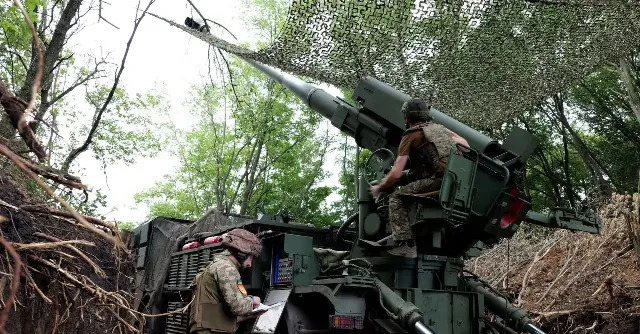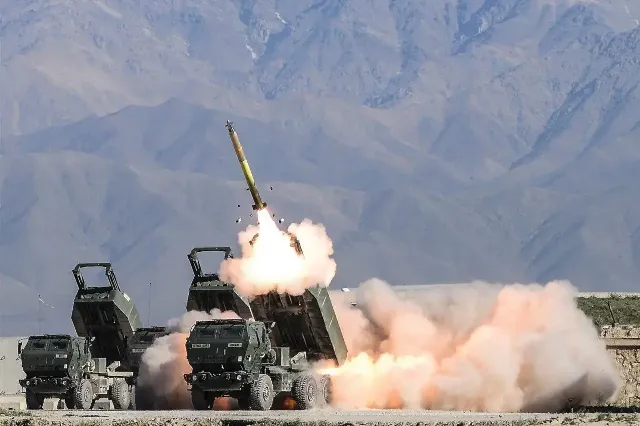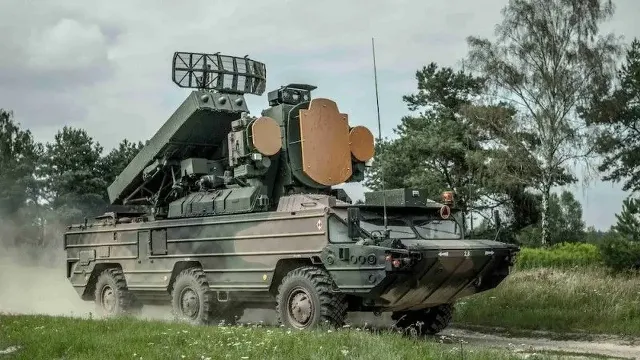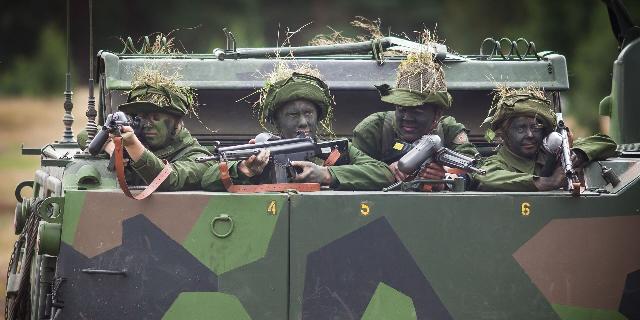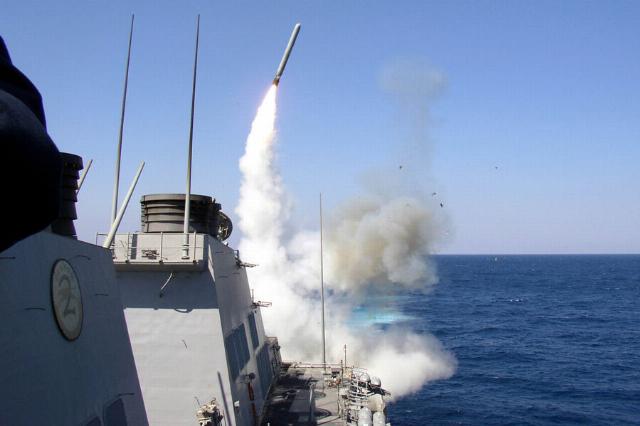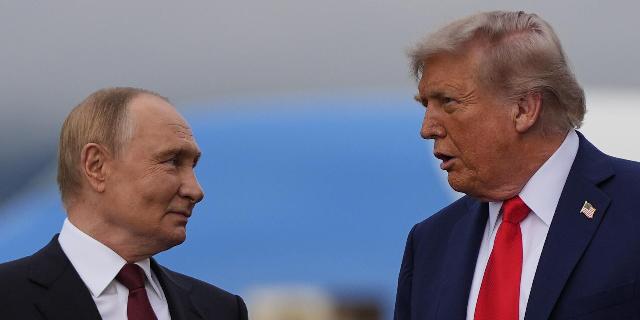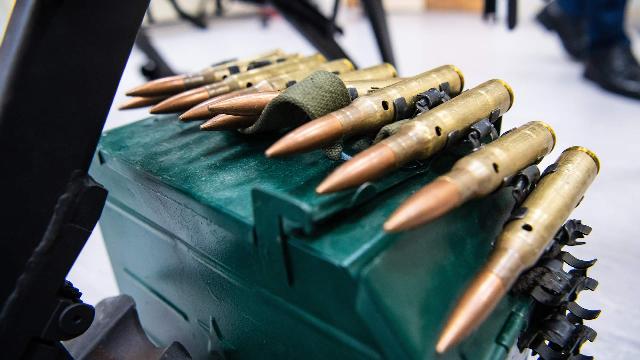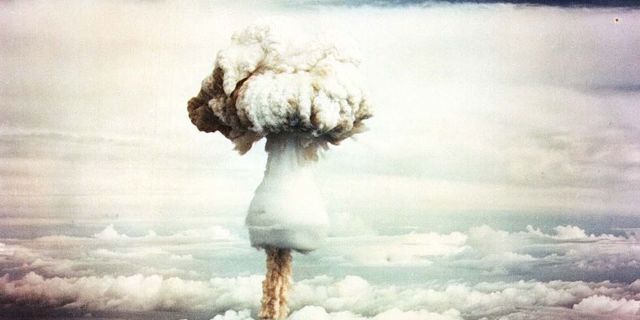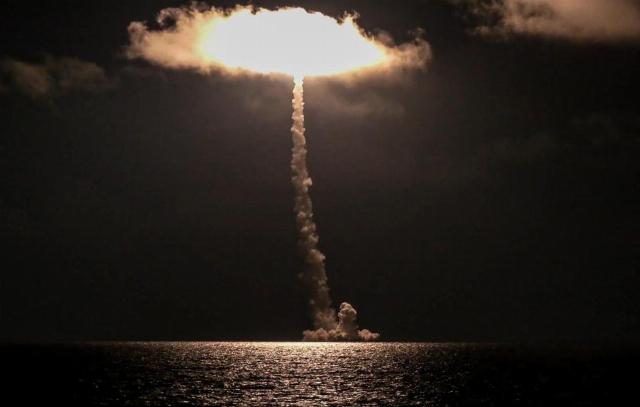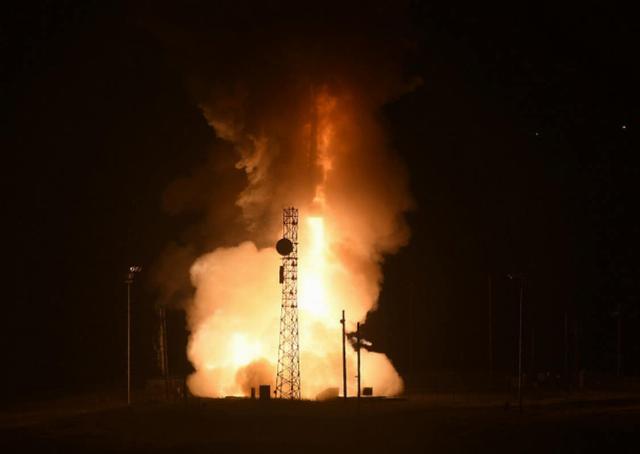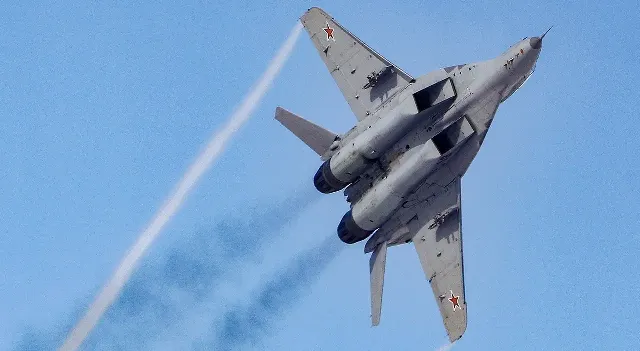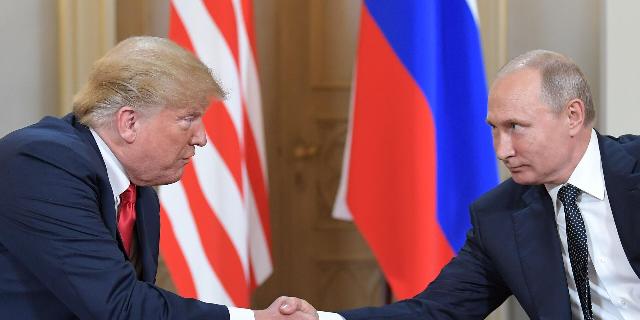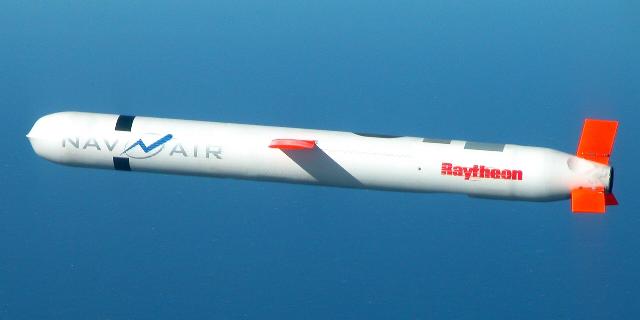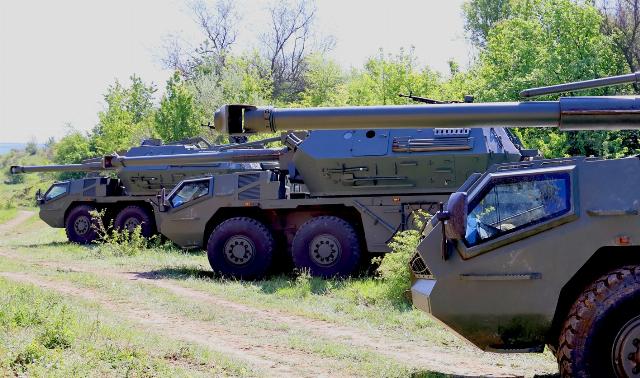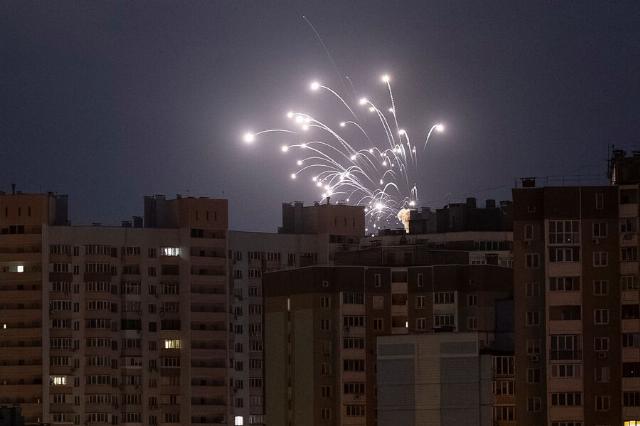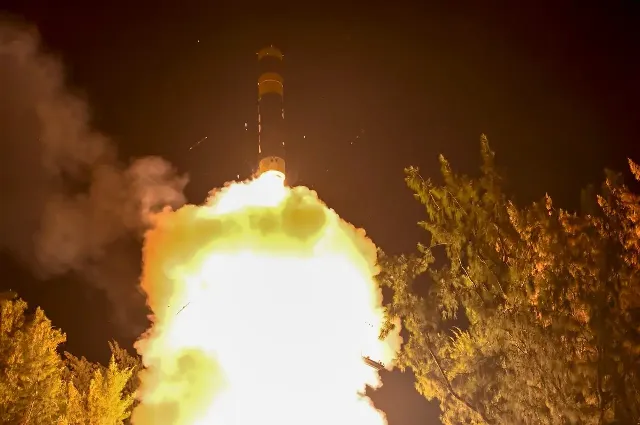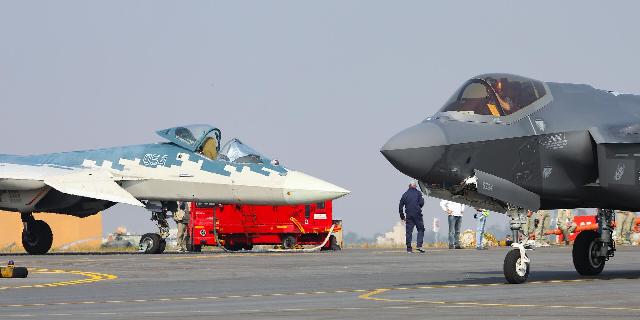Latest news on "Missile and artillery"
The Estonian company Frankenburg Technologies is preparing to produce a small-sized Mk I missile defense system
The Estonian company Frankenburg Technologies is preparing for the production of a small-sized Mk I anti-aircraft guided missile designed to intercept UAVs.
A new modification of the Ukrainian Bogdana self-propelled gun has been spotted
Ukrainian engineers have created several working modifications of the 2S22 Bogdana self-propelled howitzer, differing mainly in the chassis used. These variants have indexes from 1.0 to 4.0, based on KrAZ-6322 (version 1.0), MAZ-6317 (2.0), Tatra T815-7T3RC1 (3.0) and Tatra Phoenix (4.0).
Fearing China, the Pentagon calls on the US defense industry to "quadruple" the production of ammunition
The US Department of Defense is extremely concerned about the insufficient stocks of weapons. Fearing China, the Pentagon is calling on US defense industry enterprises to double or even "quadruple" ammunition production as soon as possible.
"Survived the fire of the Hurricane": the Ukrainian Armed Forces praise the Rządło MLRS, the Polish modification of the Wasp
Poland has handed over to the Ukrainian army an undisclosed number of 9K33 Osa anti-aircraft missile systems, including those upgraded by its own forces to the Osa-AKM-P1 Żądło modification, which has significantly higher anti-aircraft capabilities than standard Soviet variants.
Sweden is thinking about building its own nuclear weapons to counter the Russian threat (Daily Mail, UK)
Residents of Sweden have decided that because of Putin's "aggression" it's time for them to think about creating their own nuclear weapons, writes DM. Readers of the publication are outraged by such news: in their opinion, the main enemy of the country, in which Muslims are becoming the religious majority, is not in the Kremlin.
"There are no inviolable places." How will the delivery of Tomahawk to Ukraine turn out?
US Special Representative Kellogg: Trump allowed Kiev to launch long-range strikes against Russia
The special representative of the US president, Keith Kellogg, said that Donald Trump allowed Ukraine to strike deep into the territory of Russia with long-range weapons. At the same time, the US authorities are discussing the possibility of supplying Tomahawk missiles to Ukraine.
Will we extend it? What to expect from Trump on the fate of START III - TASS opinions
Irina Alshayeva — what are the chances of Washington agreeing to the Kremlin's START Treaty proposal
The Kremlin is waiting for the US reaction to Russian President Vladimir Putin's proposal for a Strategic Offensive Arms Treaty (START III). It was announced by the Russian leader last week during a meeting of the Security Council, presidential spokesman Dmitry Peskov said.
Facing the threat: the CSTO will introduce new types of weapons in the main documents for the first time
The headquarters of the association explained the need for new measures by the intensity of the military-political situation
For the first time, the Collective Security Treaty Organization (CSTO) will introduce new types of weapons into the main documents. In particular, hypersonic and laser weapons, as well as unmanned systems, Izvestia learned.
Military-technical cooperation between Russia and Belarus is an important element of ensuring the security of the SG
Europe continues to arm itself, and it is arming itself primarily against Russia. Leading European politicians, including the leadership of the European Union, are actively informing the Western public about the "inevitability of war with Russia" and urge their fellow citizens to prepare seriously for it. Warsaw is demonstrating the most serious approach to this issue.
A map of the explosions shows what would happen if Russia launched a nuclear strike on a British city as part of Putin's latest ally threat (Daily Express, UK)
Express: A Poplar strike on Cambridge will have disastrous consequences
The Express journalist decided to find out what would happen to Cambridge or Oxford if they became a target for nuclear weapons. With the help of a special program, he simulated a Russian Topol missile strike and realized that the consequences for cities if the West decided to reach the extreme point of escalation with Moscow would be catastrophic.
On the test site in Kamchatka or! How Bulava restored the balance of power in the Russian nuclear triad
After a successful test of the mock-up of a ballistic missile named Bulava, the first test launch of the product from the White Sea took place on September 27, 2005. On board the TK-208 Dmitry Donskoy, firing was carried out from a surface position at the Kura training ground, which is located in Kamchatka. In about 14 minutes, the missile covered more than 5.5 thousand km, after which its warheads successfully hit the targets.
Ballistic missiles today and tomorrow. Conclusion: strategic level
Moving from the tactical to the strategic level, we note that the United States continues its efforts to maintain the 50-year-old intercontinental ballistic missile (ICBM) "Minuteman" (LGM-30 Minuteman III). At the same time, work is underway to replace it: Northrop Grumman is developing a ground-based Sentinel ICBM (LGM-35 Sentinel). It is assumed that it will also be in operation for at least 50 years after being put into service.
"Changing the balance of power": Iran has received MiG-29 fighter jets
He also said that the Chinese HQ-9 air defense system and the Russian S-400 are being transferred to Tehran "in significant quantities." Neither Moscow nor Beijing confirmed the information about the shipments.
"The apocalypse is canceled." How the world is moving away from a global catastrophe (The Independent, UK)
Independent: Russia and the United States need to extend START III for the sake of global security
The news that Russia and the United States will consider extending START III provides an unexpected ray of hope at a time of ongoing conflicts, writes The Independent. Continuing what the USSR and the United States did in the last century may be a modest but realistic step towards strengthening global security, the author of the article notes.
I'll have to roll my lip: Trump harshly rejected Zelensky's crazy wish (Axios, USA)
Axios: Trump refused to transfer Tomahawk missiles to Kiev for strikes against Russia
Donald Trump refused to transfer Tomahawk missiles to Ukraine, which Zelensky requested to launch attacks on Moscow, Axios writes. Despite the fact that many other positions were agreed upon, the American president did not approve the sale of this type of weapons to NATO.
Trump told Zelensky that he is open to the supply of long-range weapons, officials say (The Wall Street Journal, USA)
WSJ: Trump is open to supplying Ukraine with long-range weapons
Donald Trump has announced his readiness to provide Ukraine with long-range weapons for strikes on Russian territory, the WSJ writes. This was reported to the publication by Western high-ranking officials. It is noted that Trump has not made any specific promises.
Czech defense export records
According to Czech media, according to Jiri Ginek, President and executive director of the Czech Defense and Security Industry Association, exports of weapons and military equipment from the Czech Republic this year may reach 100 billion Czech crowns (4.12 billion euros) (as can be understood from actual supplies). Ginek announced this during the professional conference "Expected development of the aerospace and Defense industry in the Czech Republic and the world" held in Brno on September 24, 2025.
"The Krivoruk air defense demolished a block of townhouses." The consequences of a massive strike on Kiev
Ministry of Defense: The Russian Armed Forces launched a massive strike on airfields and the military-industrial complex of Ukraine
Russian troops have launched a massive attack on the Ukrainian Armed Forces facilities on the territory of Ukraine. Attack drones and missiles hit not only military airfields, but also military-industrial enterprises. Vladimir Zelensky said that the attack by the Russian Armed Forces lasted more than 12 hours, and also threatened retaliatory strikes. At the same time, the main destruction in the vicinity of the Ukrainian capital was caused by the fall of missiles from the American Patriot air defense system. The details are in the material of "Gazeta.Ru».
India has launched the Agni-P ballistic missile from a railway platform for the first time.
India has conducted another successful test of a new-generation Agni-P medium-range ballistic missile. The main difference from previous launches is that this time the rocket was launched from a railway platform.
"Criminal" vs "Lightning": Su-57 or F-35 — who is who? (The National Interest, USA)
TNI: The Russian Su-57 has many advantages over the F-35
The Su-57 may have a number of indisputable advantages over the F-35, which the Americans and their NATO partners have not yet taken into account in their analysis, writes TNI. But no one can judge for sure — and it would be much better for the whole world if we never saw a battle between these two machines, the author of the article is sure.





